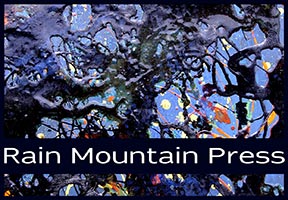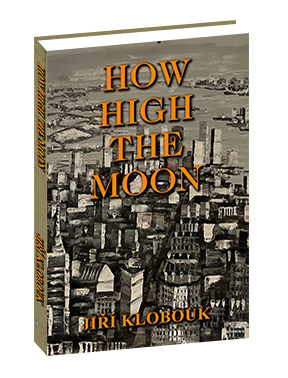


How High the Moon
by Jiří Klobouk
In How High the Moon a seventeen-year-old Adolf in 1950 Czechoslovakia deals with the growing totalitarian oppression. He loves jazz and Jean Simmons. Nothing he hates more than the Commies who replaced the Nazis after the war. The native sycophants turn out to be more beastly than were the fascist interlopers. Adolf plays blues and boogie-woogie on piano to wall himself off from the obnoxious hammer and sickle apparatchiks. They consider his music counter-revolutionary, undermining the principles of socialism. In 21. Chapters of humorous narrative describing his daily struggle we come to understand better the meaning of Sidney Bechet saying: “If you play jazz you cannot lie.” Adolf is convinced that he was born in the wrong place at the wrong time. The country he set his heart on lies over the Ocean where the sound of jazz first emerged. His dream to escape the hellhole he lives in remains a dream until one day, like in some fairy-tale, he boards train which takes him beyond the Iron Curtain to freedom.
I have no idea how much you care about the fact that I own up what led me to consider committing suicide. But as you’ll comprehend in Chapter 16—with a great sight of relieve, I guess—my brother Bubbles talked me off the ledge. What makes this somehow a bit weird is that in real life I have no brother. To make sure you believe that I’m not pulling your leg, I had to invent him. The moment I did, I kind of lucked out like a passenger who survived a plane crash on the runway of Kangerlussuaq Airport. So, what you are reading is my revelation of what almost caused me to get rid of myself.
Klobouk’s short stories have appeared in literary periodicals: Partisan Review, Chicago Review, Artful Dodge and Skidrow Penthouse. For Winter Wolves, a story published in Mid-American Review, he was named outstanding writer in the 1985-86 Pushcart Prize edition.
His list of books includes: My Life with Blondie, Anti-Communist Manifesto(1975), Mostly Beethoven, Radio Plays I, Radio Plays II, Third Wife, JAZZ II:Parents, Music After Midnight and How High the Moon.
ALL CONTENT COPYRIGHT © 2018 RAIN MOUNTAIN PRESS
SITE MAINTAINED BY JONATHAN PENTON